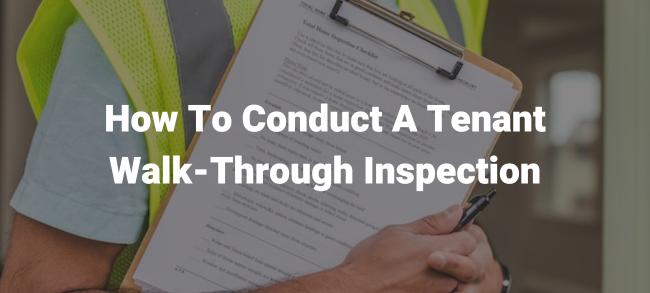Using the Cap Rate to Make Your Investment Property Decisions
Real estate investing is undoubtedly one of the best and safest ways to make money compared to shares and stocks. In fact, 90% of the world’s millionaires are involved with this particular activity.
Of course, not everyone who invests in real estate will see amazing results or even results at all. The key to successful real estate investing is knowing how to properly find and evaluate a property.
Now, there are four main ways to calculate the profitability of a real estate investment. These include cash on cash, net operating income, the rate of return, and cap rate. In this article, we’ll focus entirely on the cap rate .
What is a “Cap Rate?”
Often just called the cap rate , the capitalization rate is the ratio of Net Operating Income (NOI) to property asset value. It’s the most commonly used baseline for comparing investment properties.
The higher the rate, the better the investment’s return on investment (ROI). Let’s take an example of how a cap rate is commonly used.
Suppose a property has a price tag of $100,000 and can earn an annual income of $12,000 (or $1,000 per month). Ongoing costs like property management fees, homeowners association (HOA) fees, property taxes and other fees sum to $350 per month.
Now, your net operating income (NOI) per month becomes $650. Multiply this by 12, and you have an annual net operating income of $7,800.
Next, divide the NOI by the property’s value. ($7,800/$100,000). This gets you 7.8%, which is the property’s cap rate.
Why Capitalization Rates Matter in Investment Property Decisions
The cap rate offers an accurate estimation of a property’s profitability. This is a vital metric for real estate investors. It helps investors compare potential investments and understand their investment’s return prior to deploying their capital.
Below are some reasons why savvy real estate investors like to use cap rates.
· Helps in choosing between investment options
Sometimes, investors find themselves in situations where they have to choose between two or more viable investment opportunities.
It may seem overwhelming at first glance. What type of property should you invest in? Understanding the cap rate can prove helpful in this regard. It’ll help you know which investment option has the best ROI potential.
· Gives you the chance to get a detailed understanding of all the operating costs
When it comes to operating an investment property, management and overhead costs can easily get out of control.
Understanding your NOI early on, may enable you to make changes that would help increase your profitability. For example, you may realize that a property has excessive energy costs because of certain inefficiencies.
Deciding Whether a Property Is a Good Investment
Doing the math is the only way to determine if a property is a good investment. As mentioned before, the higher the rate, the higher the property’s ROI. Many experts agree that anything closer to 10% means the investment is a good one.
When prospecting for an investment property, avoid making decisions based on emotions. Rather, base your decisions on critical analysis.
To better illustrate this, suppose landlord ‘A’ is prospecting for an investment property in Tampa, Florida. They have narrowed it down to three options:
· The first property is valued at $700,000
The annual rent and average annual expenses are projected to be $72,000 and $20,000 respectively. Therefore, the cap rate for that property becomes 7.43%. ($72,000 – $20,000/$700,000).
· The second property is valued at $415,000
The annual rent and average annual expenses are projected to be $54,000 and $23,000 respectively. Therefore, the cap rate for that property becomes 7.47%. ($54,000 – $23,000/$415,000).
· The last option is valued at $500,000
The annual rent and average annual expenses are projected to be $48,000 and $30,000 respectively. Therefore, the cap rate for that property becomes 3.6%. ($48,000 – $30,000/$500,000).
Landlord ‘A’ can clearly see that the last investment option isn’t worth it. The first two, on the other hand, have similar capitalization rates. So, which option should they choose? Well, this is the simple part.
To make the right decision, they’ll need to consider other factors. For example, future value predictions, upgrading needs, and location.
Using Cap Rate to Know when to Sell an Investment Property
Savvy property investors can also use this rate to know when to sell an investment property. According to Financial Samurai , if your cap rate is below a risk-free 10-year Treasury bond rate, consider selling.
As of January this year (2018), that rate was 2.55%.
Presently, San Francisco seems to have the worst average cap rate at 2.8%. For investors there, selling their property now would be the worst decision. That said, it’s still possible to reach a cap rate of 2.55% or lower depending on your property’s loan interest rates, taxes, and maintenance needs.
Aside from cap rate, there are a number of other factors to consider when answering the “should I sell” question.
- Is your investment property bringing in consistent negative cash flow?
- Do you still have time for your investments?
- Is the tax reform against your investments?
- Does real estate make up 50% or more of your net worth?
- Is your property being targeted for tax hikes?
- Do you enjoy your investment property business?
Whether you are just starting out or are a seasoned investor, understanding how to use cap rate during your decision to purchase an investment property is essential. Hopefully, this article has been helpful in this regard.
If you would like assistance, don’t hesitate to reach out to us at Advantage Real Estate Services. We would be happy to answer any questions you may have!













